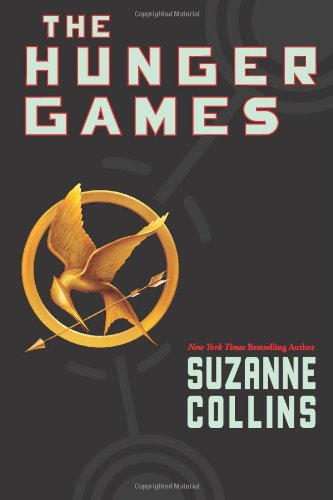All Nonfiction
- Bullying
- Books
- Academic
- Author Interviews
- Celebrity interviews
- College Articles
- College Essays
- Educator of the Year
- Heroes
- Interviews
- Memoir
- Personal Experience
- Sports
- Travel & Culture
All Opinions
- Bullying
- Current Events / Politics
- Discrimination
- Drugs / Alcohol / Smoking
- Entertainment / Celebrities
- Environment
- Love / Relationships
- Movies / Music / TV
- Pop Culture / Trends
- School / College
- Social Issues / Civics
- Spirituality / Religion
- Sports / Hobbies
All Hot Topics
- Bullying
- Community Service
- Environment
- Health
- Letters to the Editor
- Pride & Prejudice
- What Matters
- Back
Summer Guide
- Program Links
- Program Reviews
- Back
College Guide
- College Links
- College Reviews
- College Essays
- College Articles
- Back
The Hunger Games by Suzanne Collins
The driving force of life is motivation. Were people to lack in the desire to achieve their dreams, surpass their peers and improve the status quo, today we would not have at our disposal mod cons such as electricity, television etc. However, at the basis of our accomplishments and chiefly our survival lies morality – the innate distinction between right and wrong. Thus arises the conflict between the ultimate objective and the ways one can achieve it. The Hunger Games is an excellent example of this clash. It puts forwards the question whether a noble cause vindicated base means.
The book tells the story of Panem – a country built on the ruins of North America. After World War 3 demolished the rest of the continents, it was the only place where life could thrive. It is comprised of twelve districts, living in labour and toil, and the Capitol where the government and the prominent and affluent citizens bask in ostentation. Since District 13 revolted and was completely destroyed, Hunger Games have been organized annually. Their aim is to remind the rest of the districts that they are all at the mercy of the mighty, corrupt government. Twelve boys and twelve girls are confined in an arena with adverse conditions. Only one can survive.
Katniss Everdeen succeeds in deceiving the Capitol circumvents the rules and manages to save both herself and the love of her life Peeta Mellark. Her audacity engenders intrepidity in the hearts of the tormented citizens of Panem. With joint forces districts and refugees pluck up the courage to wage a war against the malign government. Their desire to establish a new reign – to elect a president that would respect their needs and enhance their lifestyle. They yearn for justice and peace. Nevertheless, the means to obtains this goal are malevolent. War begets anarchy, chaos and the death of many innocent people. The districts are using the same lethal weapons and the lure of terror as their vicious foe in order to prevail in the struggle. In the end, they do indeed win – at the cost of their own sanity, though.
The protagonists fail to forget the depravities and iniquities of the war. Never do the nightmares caese. The people who participated in the military acts mangled their moral values. The Hungers Games may have been banned, the despotism – brought to an end but the malevolence and severity of the war would go on thriving in their hearts. Panem is a democaratic republic at the end of the novel but its citizens are neither free, nor delirious. They are fully aware that their houses are figuratively built on the lands of a cemetery. The end justified the means, but was the end worth the aftermath?
Similar Articles
JOIN THE DISCUSSION
This article has 0 comments.
